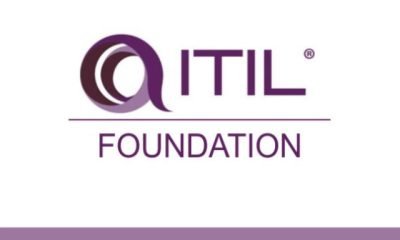Finance
Different Ways to Make a Credit Card Payment: Online, Mobile, and More


Credit cards are a great way to buy items and access credit when needed. But it’s important to understand the different ways you can pay off your credit card debt.
Making credit card payments is an essential financial task for many. But with the advancement of technology, there are now many ways to make a credit card payment. From online wallets to mobile banking apps and even physical bank branches, several options are available to make credit card payments quickly and easily.
Whether you’re interested in applying for a new credit card online, managing your existing debt, or simply trying to stay on top of your payments, this blog will provide the information you need to make the best choice.
We will discuss different ways to make a credit card payment – online, mobile, and more. So, let’s get started and explore the ways you can make your credit card payments.
Different Ways to Make Credit Card Payments
Making credit card payments is one of the most important parts of managing your finances. Whether you are paying off debt or building credit, making timely credit card payments is the key. But how can you make a credit card payment?
Several methods are available to you, all of which are easy and secure.
Here are 10 different ways to make a credit card payment:
Online:
Most banks and credit card issuers offer online payment options. All you need to do is log into your card issuer’s website, enter your payment information, and the payment will be processed.
Mobile:
Mobile payments are becoming increasingly popular and are a good way to pay with a credit card. Mobile payments are quick and easy, and you can even set up automatic payments, so you don’t have to remember to make them each month.
Telephone:
It’s still possible to make payments via telephone. Simply call your card issuer’s customer service number, have your credit card handy, and the representative will walk you through the process.
Mail:
You can mail your credit card payment to the address provided on your statement. It may take a few days or weeks to process your payment, but it’s a reliable way to ensure it is received.
Automatic payments:
You can set up automatic payments with your card issuer so that payments are withdrawn from your account each month. Automatic payments are convenient and can help you avoid missing a payment.
Third-party payment services:
Several third-party services make it easy to pay your credit card bills. These services can be especially beneficial if you don’t have a bank account or if you don’t have access to online payments.
In-person payments:
You can also make payments at your local bank or credit union. It can be a convenient way of making payments and is also a secure option.
Credit card cheque:
Some credit card companies allow you to write a cheque directly applied to your credit card account. The payment is usually processed within a few days.
Payroll deduction:
If your employer offers payroll deduction, you can have your monthly credit card payment taken out of your paycheck. It is an easy and secure way to ensure timely payments.
Online bill pay:
You can also use online bill payment to pay your credit card account. All you need to do is set up your account, enter your payment information, and the payment will be processed.
By using different payment methods, you can ensure your credit card payments are always on time. It will help you avoid late fees and interest charges and improve your credit score. Additionally, many credit card issuers offer rewards programs, which can provide cash back or other rewards for making timely payments. Paying your credit card bill payment on time also helps keep your credit utilization rate low, which is important for maintaining a good credit score.
Conclusion
While you decide on a credit card to apply for online, making these card payments is easy when you have the right tools. Online payments, mobile payments, and other payment options are all available. Make sure you go through different options to ensure which payment option is suitable for you.
When making credit card payments, it is important to consider the credit card interest rates, card limits, and fees associated with the card.
Understanding the different ways to make a credit card payment is important as it can help you stay on top of your finances.


Finance
Tips for Dealing with Insurance Companies in Florida Accident Cases


Dealing with insurance companies after an accident in Florida can be challenging. It’s important to know how to navigate these interactions to ensure you get the fair compensation you deserve.
The following tips will guide you through the process of effectively handling insurance companies in the aftermath of an accident.
Be Prepared with the Facts
Document Everything
Gather all necessary documentation related to the accident including:
- Police reports
- Medical records and bills
- Photographs of the scene and damages
- Witness statements
Understand Your Policy
Thoroughly review your insurance policy to understand what is covered and be clear about the coverage limits and any deductibles.
Communication with the Insurance Company
Initial Contact
The first step after an accident is notifying your insurance company promptly. However, this initial contact is crucial, and how you handle it can significantly impact the outcome of your claim. When reaching out:
- Prompt Reporting: Report the accident as soon as possible. Delays might raise questions about the authenticity of your claim.
- Stick to the Facts: Provide essential details about the incident without volunteering unnecessary information. Stick to the facts regarding the time, location, and parties involved.
- Avoid Admitting Fault: Refrain from admitting fault or speculating about the incident. Even a seemingly innocent statement could be used against you during the claims process.
Recorded Statements
Insurance adjusters may request a recorded statement regarding the details of the accident. While they might frame it as a routine procedure, it’s essential to approach this with caution:
- Politely decline to give a recorded statement until you have legal representation. This precaution ensures that your rights are protected, and you have guidance on what to disclose.
- Insurance adjusters may use recorded statements to their advantage, extracting statements out of context or emphasizing certain details. Having legal representation from an experienced accident attorney in Bradenton, Florida can help you navigate this process more safely.
Personal Details
When providing personal information during conversations with your insurance company, exercise discretion:
Basic Personal Information: Disclose only the basic personal details required, such as your name, address, and policy number.
Avoid delving into intricate details about the accident or your injuries during these initial communications. Such information can be better addressed with the guidance of legal representation.
Handling Insurance Adjusters
Be Polite but Firm
Maintain a polite yet assertive tone. Insurance adjusters may try to minimize your claim, but standing firm on your account and the seriousness of your injuries is crucial.
Understand Their Role
Adjusters’ primary goal is to save the company money. While they may seem friendly, they are not your advocates, so proceed with care in all interactions.
Dealing with Settlement Offers
Initial Offers
Be cautious of early settlement offers. They may not fully take into account the extent of your injuries or future medical expenses.
Seek Expertise
Consult with a personal injury lawyer before accepting any offers. They will help you understand if the offer is fair and negotiate on your behalf if it is not.
Know Your Worth
Calculate all the costs associated with the accident, including future expenses, when considering settlement offers to ensure you’re compensated for the full impact of the accident.
Legal Representation
Getting a Lawyer
Consider hiring a personal injury lawyer experienced in Florida law to navigate the claims process and to advocate for your best interests.
Contingency Fee Basis
Many personal injury attorneys work on a contingency fee basis, meaning they only get paid if you win your case, reducing the financial burden on you.
Lawyer-Client Privilege
Anything you discuss with your attorney is confidential. Use this to your advantage to get honest advice about your case.
Remember, insurance companies are businesses first and foremost, and their primary interest is in protecting their bottom line. By being informed, cautious, and proactive, you can better position yourself for a successful outcome in your Florida accident case.
When in doubt, seeking professional legal advice is your best strategy for dealing with the complexities of insurance claims.
Finance
What Are the Inputs and Outputs Expected from SIP and SWP Calculator?


Financial management is a critical aspect of our daily lives, whether we are budgeting for personal expenses, saving for retirement, or making investment decisions. With the complexities of modern finance, we need tools to help us make informed choices.
Financial calculators are indispensable tools for individual investors, students, and professionals alike. Whether you are managing your personal finances or working in finance related fields, these calculators empower you to make informed decisions, save time, and reduce the risk of financial mishaps.
In the ever-evolving world of finance, understanding and mastering these calculators is a valuable skill that can greatly contribute to your financial success. So, do not hesitate to explore the world of financial calculators and leverage their capabilities for a more secure financial future. Let us explore the popular ones in this article.
A SIP calculator and an SWP calculator are tools used to help investors plan and estimate the returns and withdrawals associated with their mutual fund investment.
SIP Calculator
A SIP is a method of investing in mutual funds where an investor contributes a fixed amount at regular intervals (typically monthly) into mutual funds. A SIP mutual fund calculator helps investors determine how their investments will grow over time based on the amount invested, the expected rate of return, and the investment horizon. Here is how it generally works:
Inputs: Monthly SIP investment amount, the expected annual rate of return (in percentage) and the investment duration (in years).
Outputs: The SIP calculator provides an estimate of the future value of the mutual fund investment, considering the compounding effect of the returns.
This helps investors in assessing how much wealth they can accumulate by making regular and disciplined investments in mutual fund schemes over a specific period.
SWP Calculator
An SWP is a method of withdrawing a fixed amount or a specified percentage of your investment from a mutual fund at regular intervals. This is the reverse of SIP, where you’re essentially turning your investments into a source of income. An SWP mutual fund calculator helps investors estimate the amount they can withdraw periodically without depleting their investment prematurely. Here is how it generally works –
Inputs: One time investment value in mutual fund, expected annual rate of return (in percentage), withdrawal frequency (e.g., monthly, quarterly) and the withdrawal amount.
Outputs: The SWP calculator provides an estimate of how long the investment is expected to last before it’s exhausted or the SWP period ends.
This helps investors plan for a steady stream of income while preserving their capital.
Conclusion
Both SWP calculator and SIP calculator can be useful tools for financial planning. It’s important to understand that the actual returns on investments can vary due to market conditions and the performance of the chosen mutual fund schemes.
Therefore, these financial calculators provide estimates based on the inputs provided, and actual results may differ. It’s essential to review your investments periodically and adjust your SIP or SWP as needed to meet or adjust your financial goals.
Many mutual fund companies and financial websites offer these calculators online for free, and you can use them to make informed decisions regarding your mutual fund investment.
Finance
A Pip in the Forex Market: A Comprehensive Guide


Pip, short for “percentage in point” or “price interest point,” is a standardised unit of movement in the currency market.
It represents the smallest price move that can be observed in the exchange rate of a currency pair. It is a term that you will hear often in forex trading, so here is a comprehensive guide on what a pip is.
Understanding Pips
To know more about it you need to understand it better.
Measurement of Movement
For most currency pairs, a pip is typically the fourth decimal place in the exchange rate. For example, a move from 1.1200 to 1.1201 signifies a one-pip movement.
In pairs involving the Japanese yen (JPY), where the exchange rates are often quoted with two decimal places, a pip is the second decimal place. So, a move from 110.50 to 110.51 represents a one-pip movement.
Calculating Value
The value of a pip is dependent on the size of the trading position (lot size). The standard lot size is usually 100,000 units of the base currency. The formula to calculate the monetary value of a pip is: Value per Pip = Pip Amount times the Lot Size divided by the Current Exchange Rate.
For example, if trading a standard lot of EUR/USD (100,000 units) and the exchange rate moves by one pip, the monetary value can be calculated using the above formula.
Practical Use of Pips
Let’s get practical and explain how pips are used.
Profit and Loss Calculation
Pips are fundamental for calculating profits and losses in Forex trading. If a trader buys a currency pair at 1.1200 and it moves to 1.1210, they have gained 10 pips. If it moves to 1.1190, they have incurred a loss of 10 pips.
Risk Management
Traders use pips for setting stop-loss orders. For instance, a trader may set a stop-loss order 20 pips away from their entry point to limit potential losses.
Position Sizing
Pips play an important role in determining the appropriate position size based on a trader’s risk tolerance.
Volatility Measurement
Pips help gauge the volatility of a currency pair. Higher volatility often means larger price movements, and traders may adjust their strategies accordingly.
Impact of Economic Events
Economic releases and events can lead to increased volatility, resulting in larger pip movements.
Some Additional Information
Fractional Pips
Some brokers quote exchange rates with an additional decimal place, known as a fractional pip. It allows for more precise pricing and is sometimes used to more precisely define fluctuations in forex rates.
Different Pip Values
Pip values vary between currency pairs and depend on the exchange rate and lot size.
Pipettes
A “pipette” refers to a movement in the fifth decimal place and is often used for even more precise price quoting.
Understanding and effectively utilising pips is pivotal for traders to navigate the forex market, manage risks, and make informed trading decisions. It forms the basis for assessing price movements and expressing gains or losses in the dynamic world of currency trading.



 Health11 months ago
Health11 months ago6 Best Ways to Get Quality Sleep



 Social Media11 months ago
Social Media11 months agoLinda Yaccarino: Twitter’s New CEO from NBCUniversal



 Work11 months ago
Work11 months agoFive Things Employees Look for in a Job Role



 shopping12 months ago
shopping12 months agoEssential Tips for Buying Jewelry Online



 Finance12 months ago
Finance12 months agoHow Can You Find Affordable Auto Insurance Using iSelect?



 Tech12 months ago
Tech12 months agoWhat Are the Advantages of ITIL Foundation Certification for Organizations?



 Entertainment11 months ago
Entertainment11 months ago5 Famous Gamblers and Their Most Memorable Quotes



 Education9 months ago
Education9 months ago7 Tips for Writing Short Stories That Captivate and Resonate




















